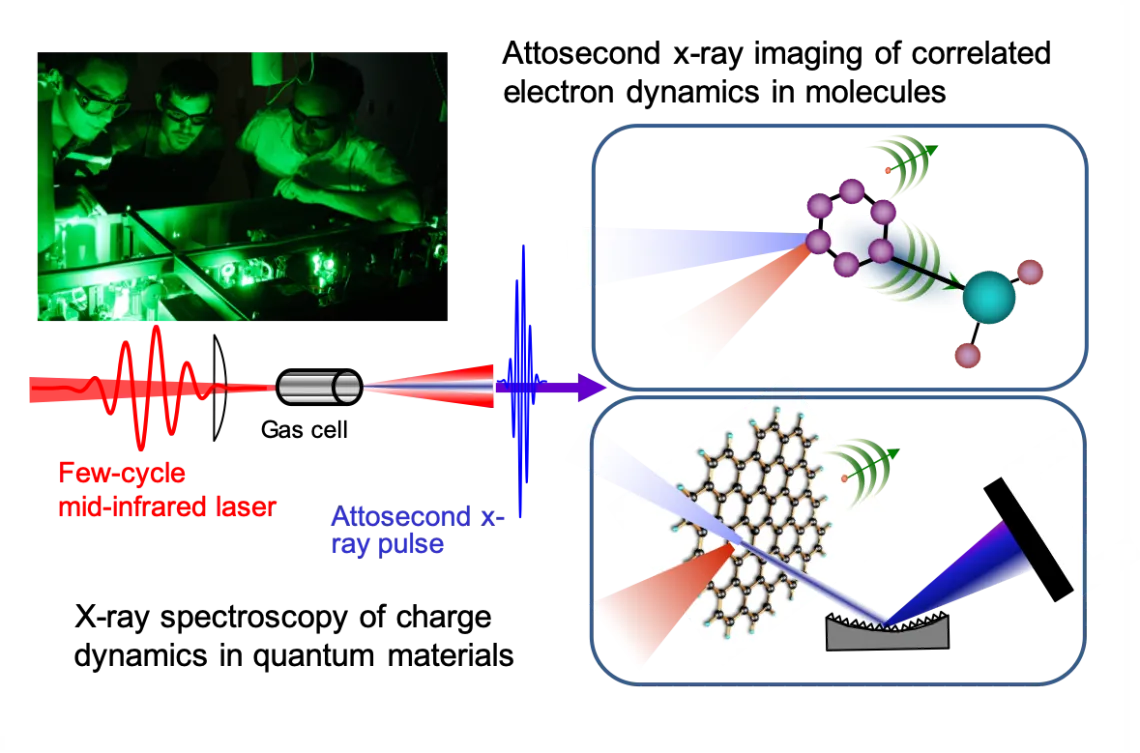Congratulations to Prof. Sandhu and his collaborative team!

A collaborative team led by Prof. Arvinder Sandhu has been awarded National Science Foundation Major Research Instrumentation Grant for developing an "Electron Correlation Observatory” - which will be a Multiuser Instrument for Attosecond X-Ray Probing of Correlated Quantum Dynamics. The total project budget is approximately $1.25M. The other members of the team are Prof. Oliver Monti, Prof. Mohammed Hassan from the University of Arizona, and Prof. Daniel Rolles from Kansas State University. The new instrument will be housed in the UA Physics Department and will also serve researchers in the Physics, Chemistry, Optical Science, and Materials Science departments.
Since their discovery in 1895, x-rays have found numerous applications in medical technologies and in the elemental and structural analysis of materials and proteins. With the advent of new laser technologies, it has become possible to produce x-ray bursts of duration less than a millionth of a trillionth of a second. These novel ultrashort x-rays pulses can provide a window into the inner workings of complex molecules relevant to light harvesting and catalysis and guide the development of novel materials for quantum information processing. Researchers working on this project will create new x-ray research opportunities by developing an instrumental platform that integrates the attosecond x-ray pulses with state-of-the-art detectors, such as transient x-ray spectrometer and electron imaging. The instrument will cover the soft x-ray range from 100 to 1000 electron volts using a high-power mid-infrared laser for harmonic generation. The goal of this effort will be direct observation, manipulation, and real-time control of quantum processes in molecules and materials. The combination of attosecond resolution, high flux, and elemental specificity will extend the x-ray spectroscopic capabilities into a new regime, leading to novel insights into fundamental electronic processes, especially those involving correlated electron dynamics. The instrument will offer easy access and research training opportunities for students and early career researchers. The project will enhance US scientific competitiveness and train the next generation workforce in new x-ray technologies.
Prof. Sandhu has also received grants from the the Department of Energy and NSF Atomic, Molecular, and Optical Sciences program to pursue new research on light induced modification of electronic couplings and coherent electron dynamics, respectively.
Once again congratulations for your dedication and hard work!



